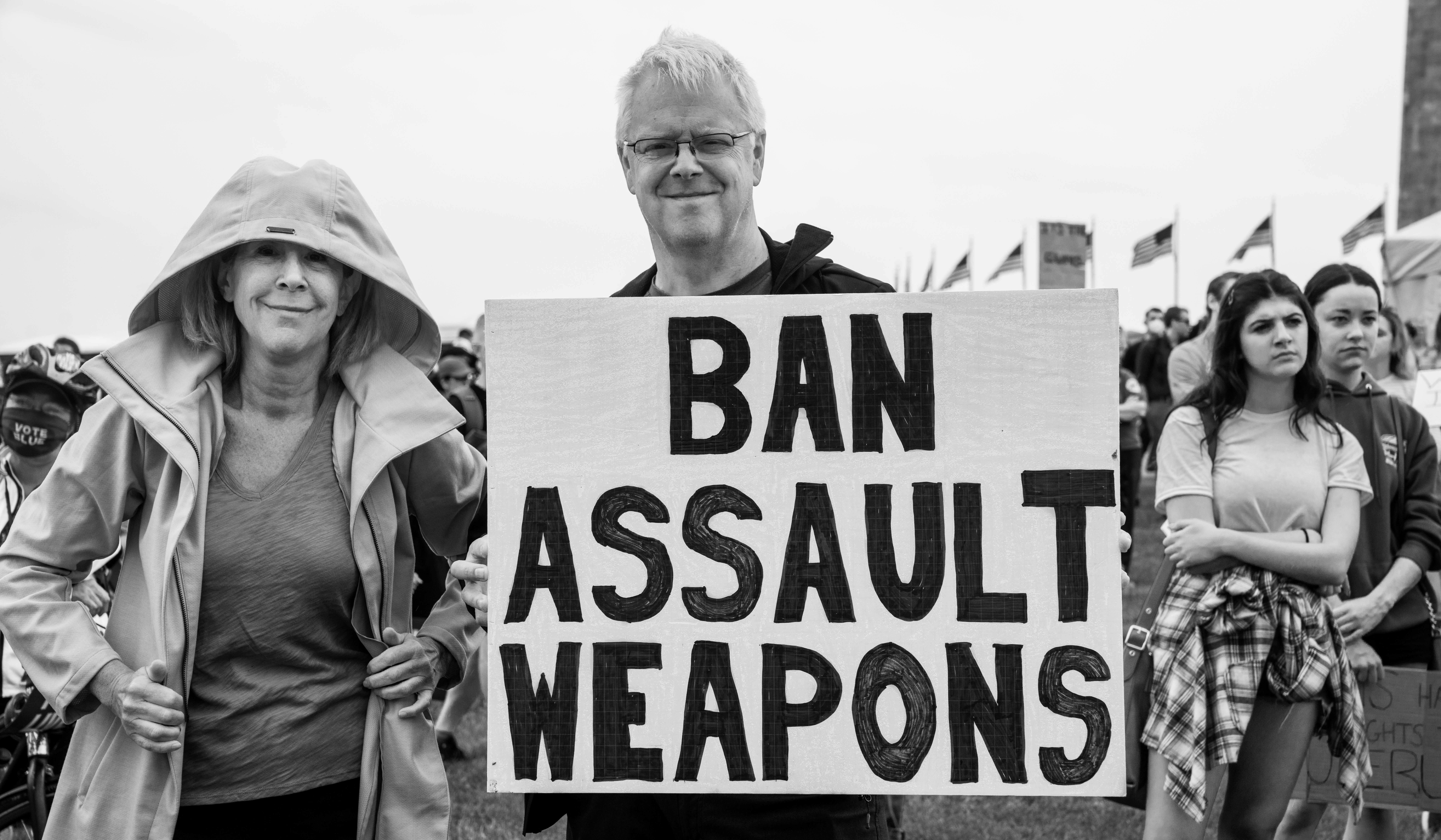For the second time in as many days, SurveyUSA and its Washington State partners have released a key poll finding that validates NPI’s research.
Yesterday, SurveyUSA’s finding of a double digit lead for Patty Murray in the 2022 United States Senate race was released and reported on by The Seattle Times and KING5. Today, the focus is Washington’s support for an assault weapons ban.
SurveyUSA found that 61% of respondents favor a ban and 34% are opposed.
We also found 38% opposed and 8% not sure.
Each local Seattle television station covered our press conference, and each published a story about what we found. After those stories ran, right wing activists and trolls began attacking our research, arguing it couldn’t be credible.
“Less than 1,100 surveyed,” griped a commenter calling themselves Dan Barnhart, not realizing that a sample size of 1,100 is huge for a state-level poll. “What a joke. That is far less than 1% of this states population. You put these bogus surveys out leading people to think thats [sic] what the majority want. In fact you survey people in masse [sic] until you find a percentage you want!”
The joke is on Barnhart. What matters in polling is not the size of the sample, but how representative it is. It isn’t feasible to call millions of people simultaneously and get their opinion. Nor is it necessary to obtain credible, valid data. That is why pollsters build samples. Like a scale model, a sample is a representation of the views of an entire population or subset of the population, like the electorate. All pollsters use samples, regardless of who they work for or are aligned with, and most state-level polls utilize samples of 400, 450, 500, or 600.
“If the survey is done correctly, it could be accurate,” said someone called “Alaska on a motorcycle,” responding to Barnhart. “However, my bet is the survey was done in Seattle. A high percentage of those want communism.”
Wrong, “Alaska on a motorcycle.” Most of the people who took our June 2022 statewide survey weren’t from Seattle or even King County. Our survey found that even voters in Eastern and Central Washington back an assault weapons ban.
“Think about it, a progressive polling group only polled 1,200-ish people,” sneered Tim Taylor. “Of course the [sic] polled their voters. Most of them are unable to make their own decisions and follow the spouted jargon.”
Actually, our survey included representative percentages of Trump voters, Republicans, and independents along with Democratic voters and Biden voters. It wasn’t just progressives who were interviewed.
A sample can’t be representative if only one segment of the electorate is included. And if a sample is not representative, then the ensuing data will be worthless.
The week after we unveiled our finding, Bonneville’s Dori Monson added his voice to the right wing chorus trashing our work. In a rant on his show, Monson griped that NPI’s research shouldn’t have gotten the coverage it did and scolded reporters and producers for taking our credible, rigorous polling seriously.
Here we are about one month later. The validity of our assault weapons ban research has now been affirmed by an entirely separate poll backed by KING5, The Seattle Times, the University of Washington’s Center for an Informed Public, and Washington State University’s Murrow College of Communication.
SurveyUSA’s finding of 61% for an assault weapons ban suggests that support may have grown in a bit in the past month, since it’s a few percentage points higher than what we found. How about that, eh Dori?
Meanwhile, the gun lobby opted to respond by circulating a national poll finding from Quinnipiac to claim that support for banning assault weapons is decreasing.
“Second Amendment Foundation founder and Executive Vice President Alan M. Gottlieb said this is clear evidence the public is waking up to the reality that gun bans are not the answer to violent crime,” one press release said.
Actually, data shows — and the rest of the world community’s experience proves — that keeping guns out of the hands of people who shouldn’t have them works. Other advanced countries have extremely low rates of gun violence because they have passed strong gun safety laws that protect their people.
The gun lobby may not agree with our proposed ideas for addressing gun violence, including an assault weapons ban. But credible, rigorous data shows that our ideas are popular. The people like them. They want them.
Washingtonians have voted for three consecutive gun safety initiatives (in 2014, 2016, and 2018) and every gun safety idea we’ve ever tested in our polling has found majority support, including banning high-capacity magazines and prohibiting the carrying of guns at local government meeting places and election sites. Now, our assault weapons ban polling has been independently correlated by another one of the most trustworthy pollsters in the industry.
Our thanks to SurveyUSA and its partners for asking this question and publishing the results. It’s great to have this data available to study.

